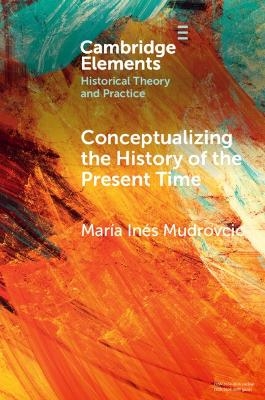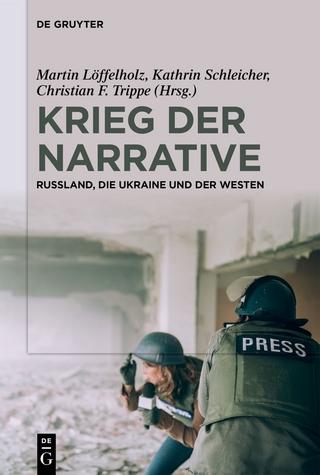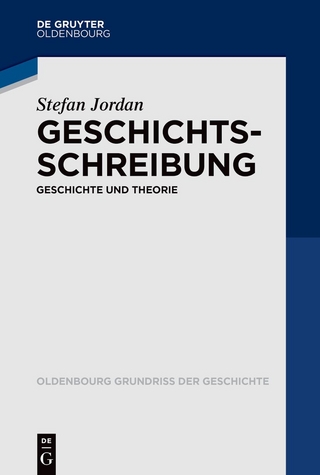
Conceptualizing the History of the Present Time
Seiten
2024
Cambridge University Press (Verlag)
978-1-009-04855-2 (ISBN)
Cambridge University Press (Verlag)
978-1-009-04855-2 (ISBN)
This Element explores four meanings of 'contemporary,' emphasizing its designation as a historical field. It argues that disagreements about when the contemporary era begins stem from historians assuming a linear, chronological, and absolute conception of time. It enriches our understanding of the concept of the 'present' in the context of history.
In this work, I explore four meanings of 'contemporary,' emphasizing its designation as a historical field. I argue that disagreements about when the presento or the contemporary era begins stem from historians assuming a linear, chronological, and absolute conception of time. Following scholars like L. Descombes, L. Hölscher, B. Latour, D. J. Wilcox and S. Tanaka, I propose conceiving relational historical time without chronology, emphasizing the original sense of “sharing the same time” that 'contemporary' acquired for the first time. This perspective mitigates issues concerning the 'beginnings' or 'meaning' of the present. Emphasizing relationships within a relational time framework aids in overcoming ontological challenges like 'so many presents' or 'distance in time,' along with the corresponding epistemological issue of 'objectivity.' This exploration aims to reevaluate and enrich our understanding of the multifaceted concept of the 'present' in the context of history.
In this work, I explore four meanings of 'contemporary,' emphasizing its designation as a historical field. I argue that disagreements about when the presento or the contemporary era begins stem from historians assuming a linear, chronological, and absolute conception of time. Following scholars like L. Descombes, L. Hölscher, B. Latour, D. J. Wilcox and S. Tanaka, I propose conceiving relational historical time without chronology, emphasizing the original sense of “sharing the same time” that 'contemporary' acquired for the first time. This perspective mitigates issues concerning the 'beginnings' or 'meaning' of the present. Emphasizing relationships within a relational time framework aids in overcoming ontological challenges like 'so many presents' or 'distance in time,' along with the corresponding epistemological issue of 'objectivity.' This exploration aims to reevaluate and enrich our understanding of the multifaceted concept of the 'present' in the context of history.
1. The present, the contemporary and the order of time; 2. Present as 'sharing the same time'; 3. Contemporary as an epoch; 4. When contemporary conflates with present; 5. History of the present time; 6. Absolute time, chronology, and history; References.
| Erscheinungsdatum | 18.05.2024 |
|---|---|
| Reihe/Serie | Elements in Historical Theory and Practice |
| Zusatzinfo | Worked examples or Exercises |
| Verlagsort | Cambridge |
| Sprache | englisch |
| Themenwelt | Geisteswissenschaften ► Geschichte ► Geschichtstheorie / Historik |
| ISBN-10 | 1-009-04855-4 / 1009048554 |
| ISBN-13 | 978-1-009-04855-2 / 9781009048552 |
| Zustand | Neuware |
| Haben Sie eine Frage zum Produkt? |
Mehr entdecken
aus dem Bereich
aus dem Bereich
Russland, die Ukraine und der Westen
Buch | Softcover (2024)
De Gruyter (Verlag)
CHF 55,90
Geschichte und Theorie
Buch | Softcover (2024)
De Gruyter Oldenbourg (Verlag)
CHF 34,90
wie Irritationen historisches Denken anregen
Buch | Softcover (2024)
Kohlhammer (Verlag)
CHF 96,55


